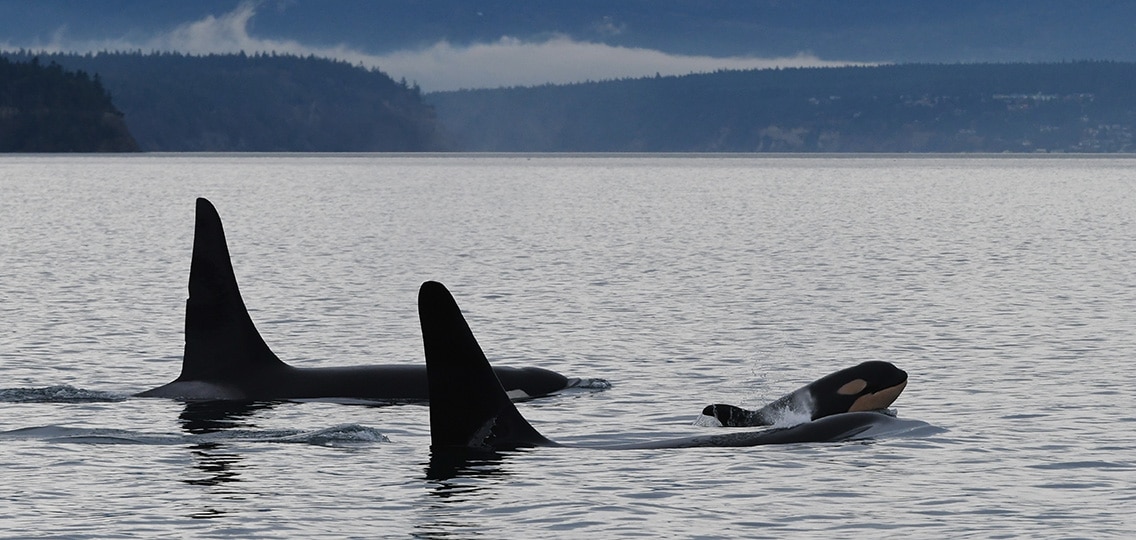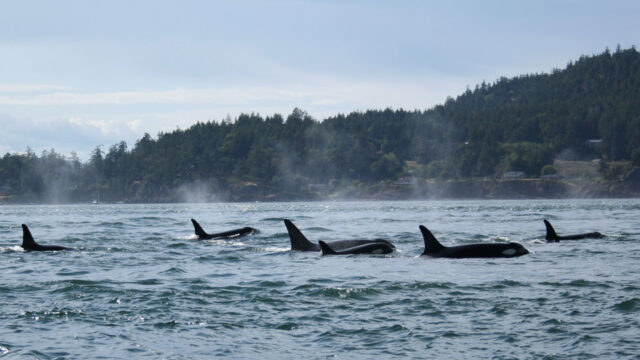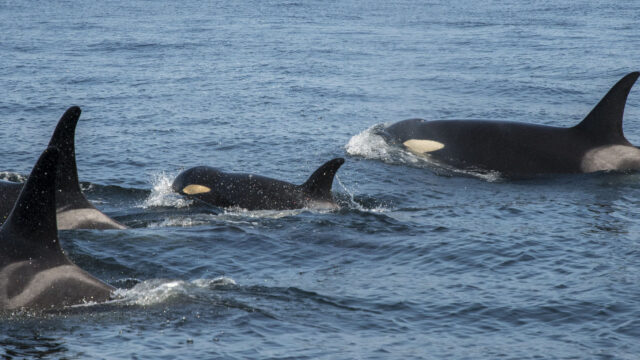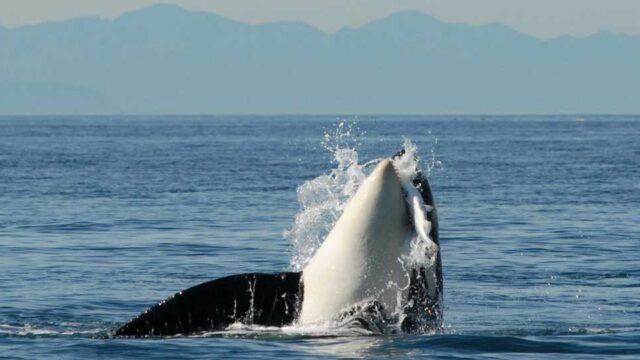At a time of a global biodiversity crisis, all governments must do everything they can to protect species threatened with extinction. At this very moment, leaders from around the world – including from Canada – are working on a global deal at the United Nations to better protect the natural world.
But to protect nature and biodiversity around the world, Canada must take the necessary action at home. That means the federal government must not approve the Roberts Bank Terminal 2 expansion in B.C.
The Vancouver Fraser Port Authority is proposing the construction and operation of a new three-berth marine container terminal at Roberts Bank in Tsawwassen in British Columbia. Known as “Terminal 2”, the project would see a three-berth container shipping terminal constructed next to the B.C. ferry terminal in the Fraser River estuary.
When the Terminal 2 proposal was announced, Ecojustice and our clients raised concerns about the project’s impact on underwater noise and pollution and what this would mean for marine mammals, fish and fish habitat, and greenhouse gas pollution.
In 2020, a federally-appointed independent review panel found that this project would pose a significant risk to Chinook salmon, and the critically endangered Southern Resident killer whales that depend on these fish as a source of food.
The Impact Assessment Agency of Canada required the Vancouver Fraser Port Authority to consult with Indigenous groups about the project and there was also a public hearing for other groups to weigh in.
Since then, the Port Authority has made some changes to its original proposal that it claims will reduce the harmful effects of Terminal 2. But we believe that this project remains a serious threat to biodiversity and long-term survival of species in the area.
Ecojustice, on behalf of our clients the David Suzuki Foundation, Georgia Strait Alliance, Raincoast Conservation Foundation and Wilderness Committee, has made a submission to the Impact Assessment Agency highlighting the impacts Terminal 2 would have on the natural environment and the sensitive marine area around the port.
The decision on what happens next with Terminal 2 now lies with Minister of Environment and Climate Change Steven Guilbeault.
He can either determine that Terminal 2 can proceed on the basis that the project won’t significant adverse effects on Southern Residents and Chinook salmon. This would, in our opinion, not be a credible position to take given the reams of scientific evidence — including submissions from Ecojustice and our partners — that clearly illustrate the threat the project poses to both orcas and salmon populations.
Or, Minister Guilbeault, after considering all the evidence, can determine that the project poses enough of a threat to a federally-protected species-at-risk that the matter must be referred to Cabinet for further scrutiny and a final decision. This is the outcome Ecojustice and our partners seek.
Chinook salmon and Southern Resident killer whales
The Terminal 2 project threatens two iconic marine species. If built, it would destroy wild salmon habitat, which would have devastating impacts on Southern Resident killer whales at another point in the food chain.
The proposed project would expand the facility into the Fraser River estuary, an important habitat for young Chinook salmon who rely on the estuary as a safe space to grow as young fish. Destroying this habitat could force the salmon into the open ocean before they are big enough and strong enough to survive there.
This would cause serious concerns at another point in the food chain. Any decline in Chinook salmon jeopardizes the future of the Southern Resident killer whales, an endangered population that relies on Chinook for survival.
Despite proposed changes to Terminal 2 by the Vancouver Fraser Port Authority, the fate of Chinook salmon is still in danger. In our submission to the Impact Assessment Agency, we highlight expert scientific evidence to show that the destruction of sand and mud flat habitats along Roberts Bank and adjacent sub-tidal areas would still endanger Chinook salmon that depend on the area for survival.
Terminal 2 will add to existing problems for juvenile salmon swimming to important habitats downstream, and proposed changes to the project will not address these issues.
The Southern Resident killer whale population – iconic to Pacific shores of B.C. – is critically endangered. Only 73 remain in the wild. Even if the modified plans for Terminal 2 are approved by the federal government, it could potentially sound the death knell for these mammals.
The federal government has already acknowledged that Southern Resident killer whales are in a precarious situation in existing conditions. Terminal 2 would be disastrous for the whales.
Not only would these whales be at risk of losing their source of food, underwater noise and physical disturbance from increased shipping traffic and larger ships at the new terminal would threaten their habitat.
Southern Resident killer whales and Chinook salmon already face the destructive impacts of the Trans Mountain pipeline project. Meanwhile, environmental conditions in the Fraser River Estuary and Salish Sea are already pushing wild salmon and the whales that depend on them to the brink. Terminal 2 would be disastrous for these species if it is allowed to proceed.
How can you help?
Ecojustice and our clients, along with conservation groups, scientists, Indigenous People and local community groups are asking Minister Guilbeault not to approve Terminal 2.
Instead, in light of the dramatic and irreversible environmental impacts this project will have on Chinook salmon and endangered orcas, we are calling on him to refer the decision to Cabinet for further scrutiny and for the Cabinet to ultimately reject the project.
Minister Guilbeault, as environment minister, is responsible for protecting Canada’s natural environment and the species who make this land their home. The minister has a duty to protect endangered aquatic species like the Southern Resident Killer Whale from dangerous impacts of industrial development under the federal Species at Risk Act.
Ecojustice urges the Minister to acknowledge that Terminal 2 will have significant adverse environmental effects and work with his fellow cabinet members to protect Chinook salmon, endangered Southern Resident killer whales, and other species and habitats that this project threatens.
You can help stop the expansion at Terminal 2. Send a letter now to Minister Guilbeault and call on him to put Chinook salmon, Southern Resident killer whales and our natural environment first.





